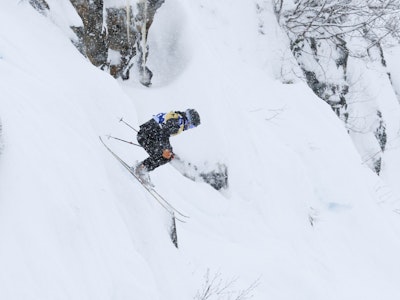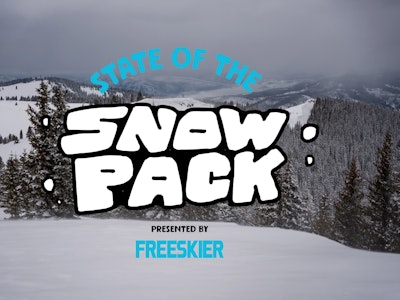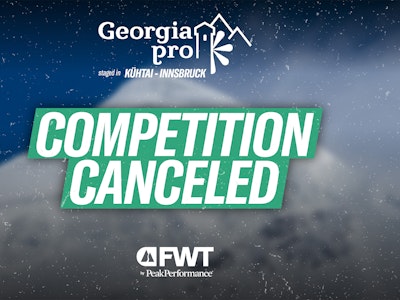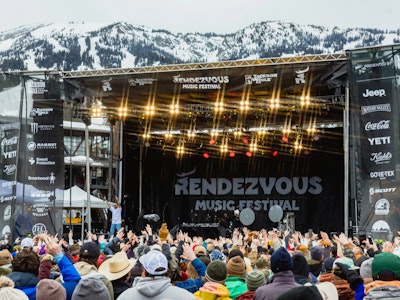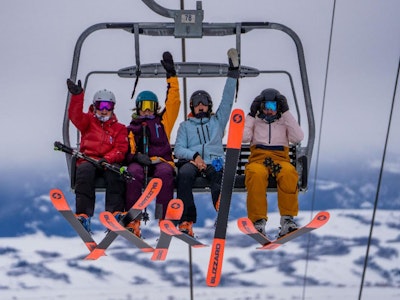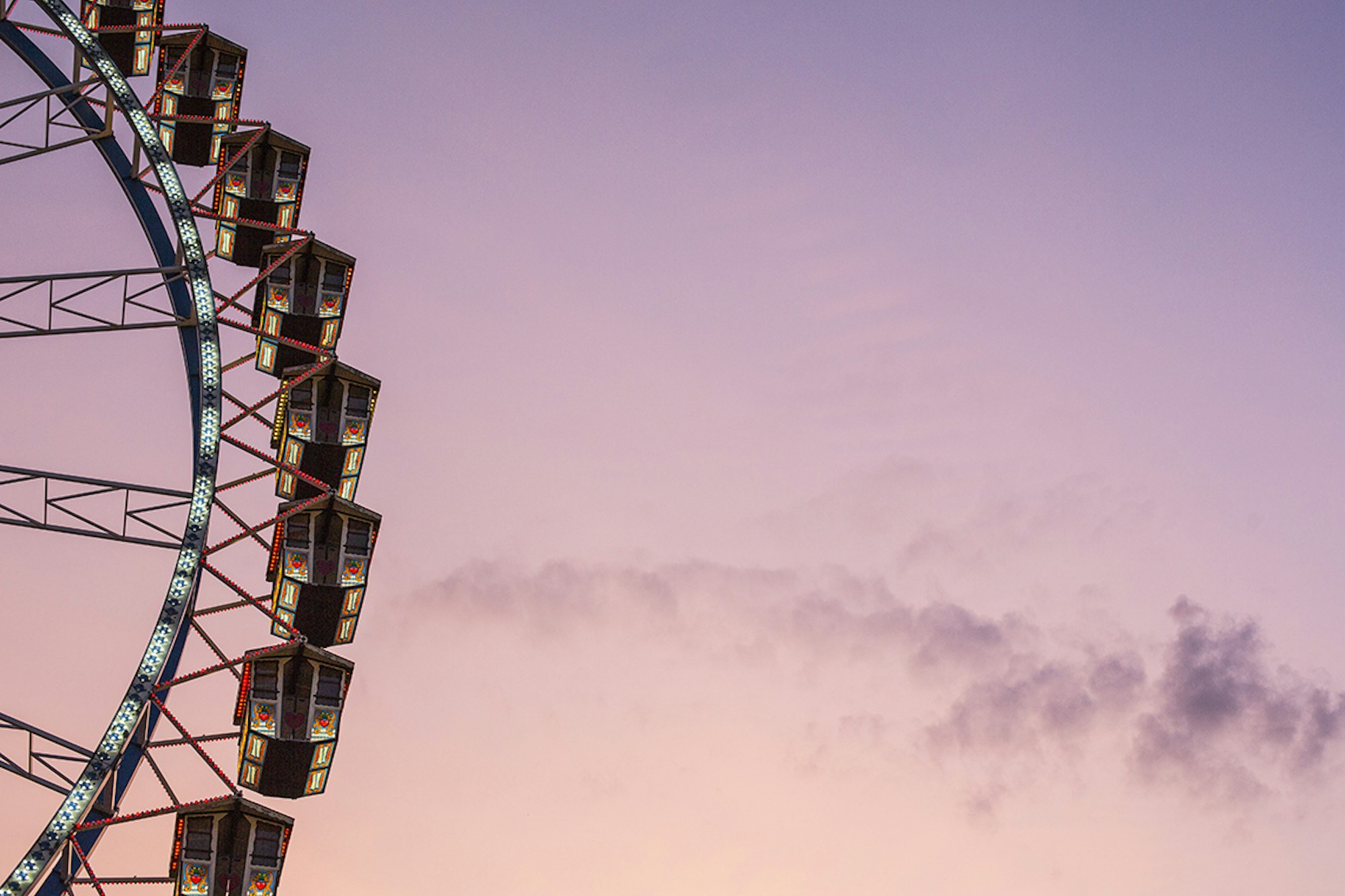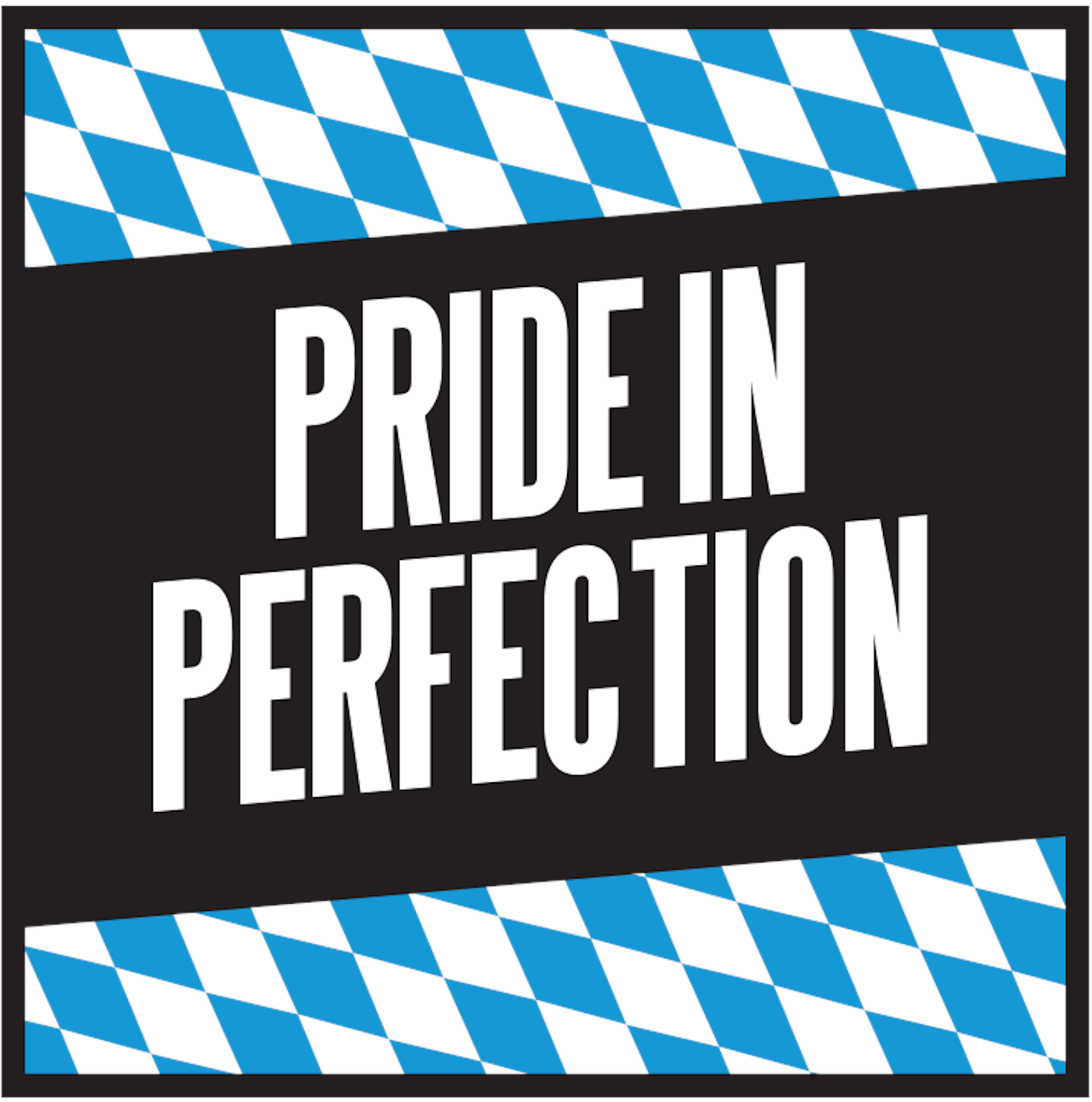
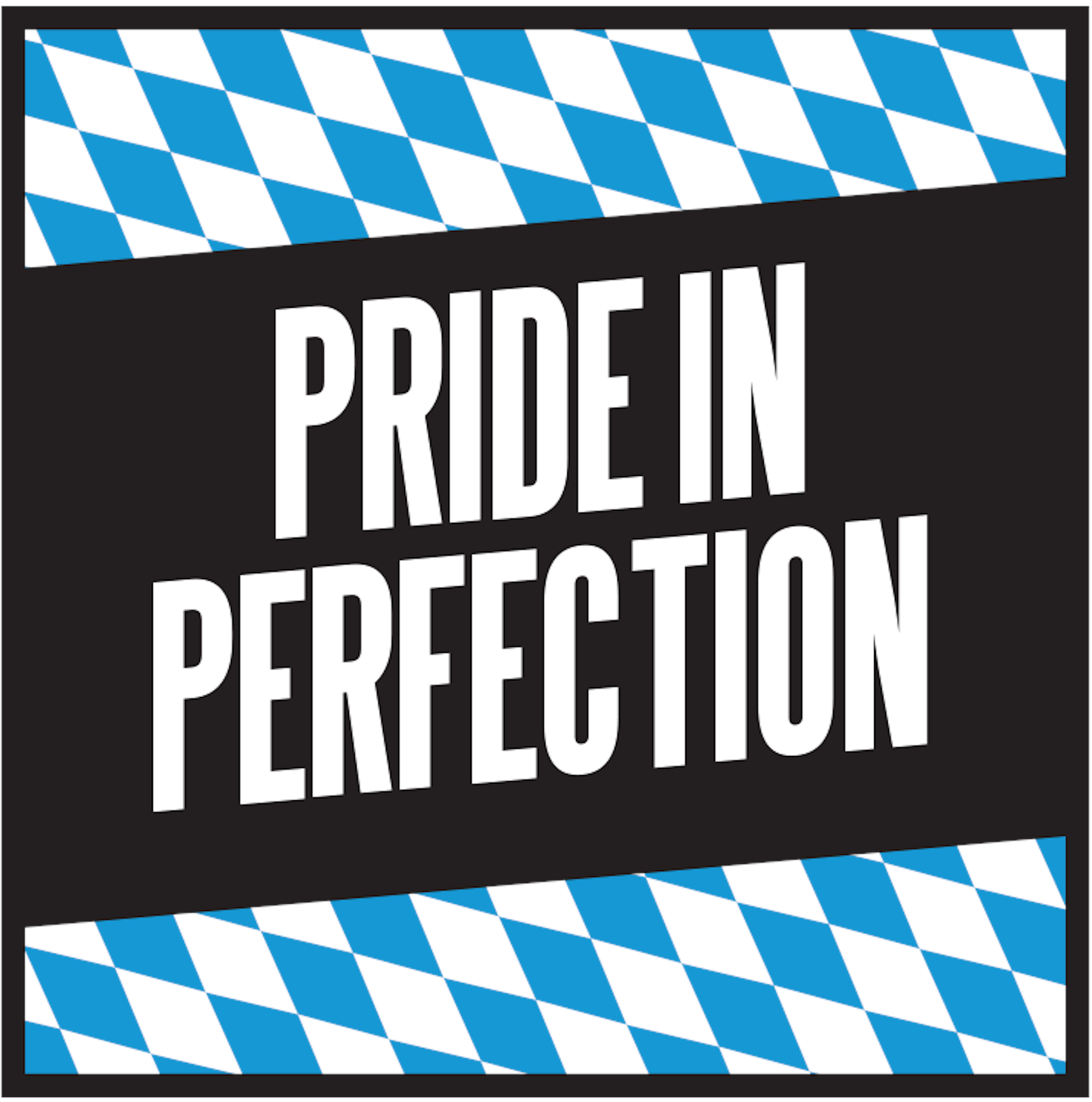
VÖLKL IS THE ESSENCE OF BAVARIAN CRAFTSMANSHIP
WORDS: DONNY O’NEILL // PHOTOS: FLORIAN BREITENBERGER
Fertile, precisely cut and maintained farmland wraps around the bustling town while the gentle mountains of the Bavarian Forest arch along the northeastern horizon. The tranquil waters of the Danube flow peacefully through the urban district on their journey southeast to the Black Sea. Beautifully crafted spires of 12th-century Gothic churches and watchtowers dot the glowing skyline as the sun begins to set. Men, women and children clothed in traditional lederhosen and dirndl stroll the cobblestone streets in a common direction. This is Straubing and everyone, myself included, has a single destination: Gäubodenvolksfest.
The traditional German beer fest and carnival is an annual 11-day celebration of Straubing’s culture and heritage and gives the townsfolk a reprieve from the hustle and bustle of everyday life. It also attracts around 1.4 million visitors each year. The event reflects the sensibilities of the people of Straubing and Bavaria as a whole. Rather than a single-night blowout, they put tremendous care in organizing an extended gala for the town and region, taking the time and effort to offer a premium experience.
It’s an attitude held by people and businesses across Bavaria, including Germany’s lone ski manufacturer, one that’s always called Straubing home: Völkl.
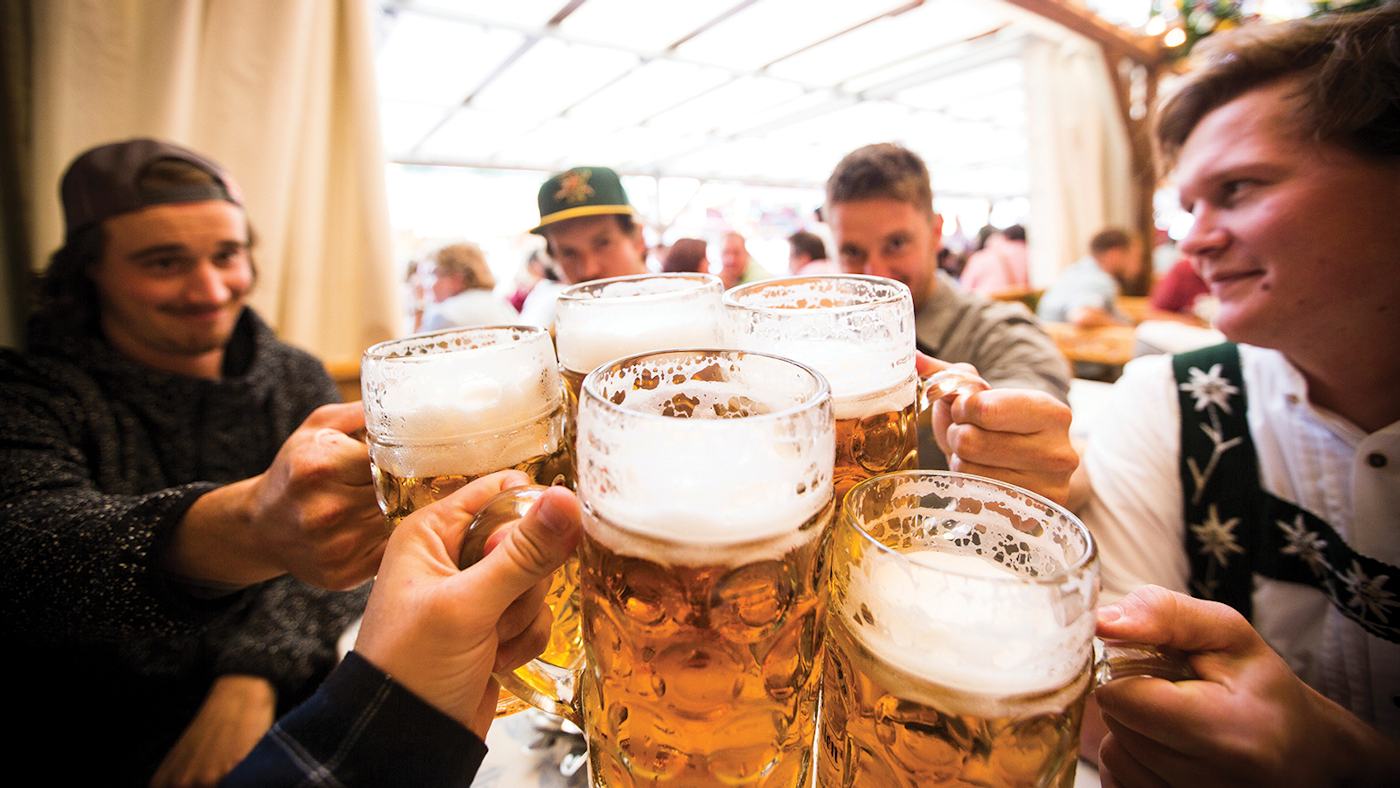
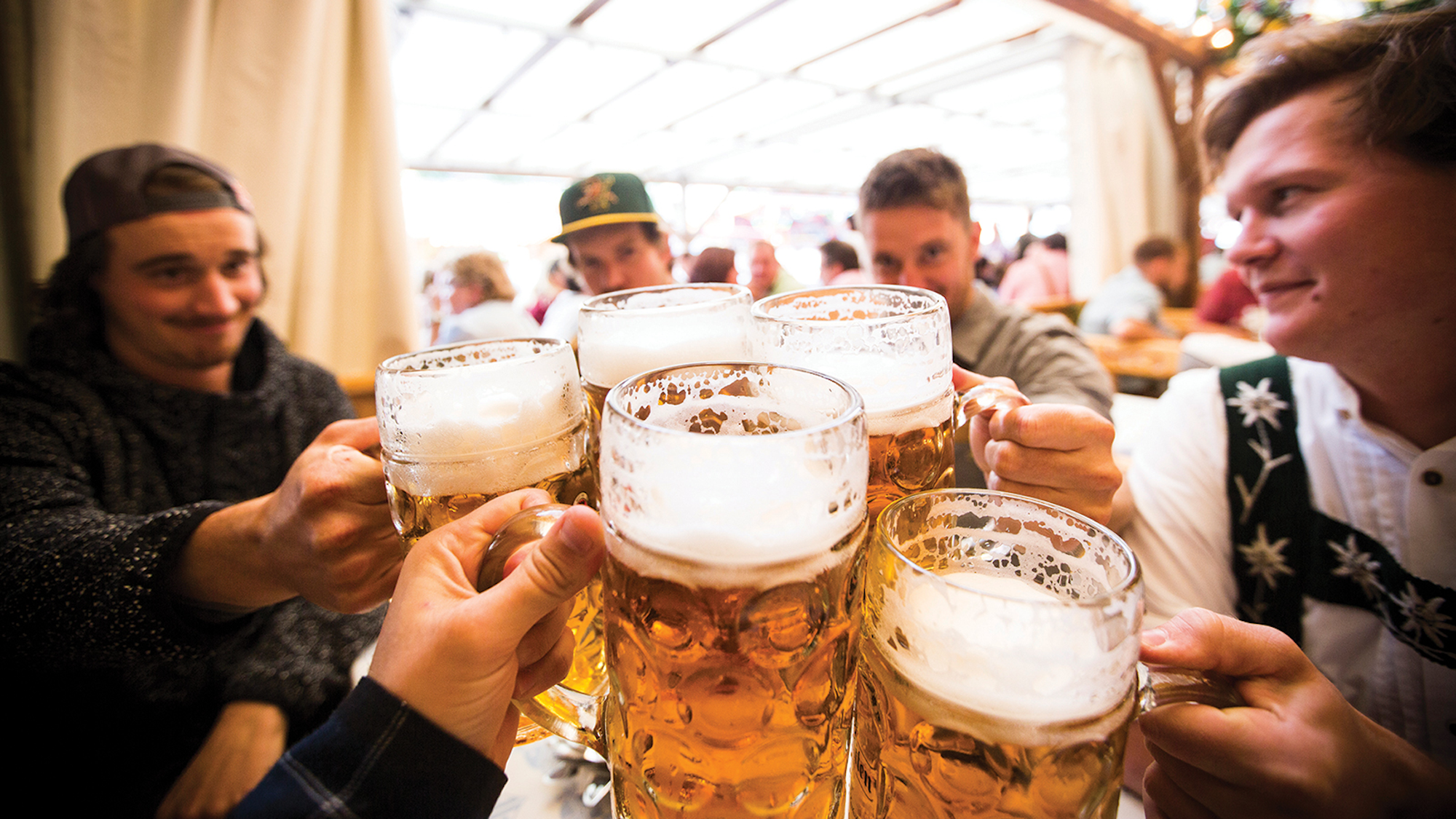
A cheers at the Gäubodenvolksfest
Pride in excellent craftsmanship is a staple of Bavarian culture. It’s reflected in high-performance automobile manufacturers like BMW and Audi, both headquartered there. Siemens, Europe’s largest industrial manufacturing company, is based in the state’s capital of Munich. Athletic-wear giants Puma and Adidas also call Bavaria home. The honor in exceptional craft can be traced all the way down to the region’s beer—mandated to consist of only water, hops and barley—and the traditional hand-carved cuckoo clocks from the Black Forest. And it’s most certainly a part of Völkl’s ethos.
“German engineering and craftsmanship is known all over the world,” explains Dominik Grunert, project manager of product development for Marker Dalbello Völkl International. “It’s in our blood, just to have a good eye for detail and wanting to manufacture in Germany. It’s put into every ski.”
Stian Hagen, the backcountry skiing pioneer who’s been partnered with Völkl since 2000, was admittedly unfamiliar with Bavarian culture when he first signed on with the ski-maker. “After almost 20 years with the brand I have learned a lot about Bavarian traditions and the local pride in [manufacturing],” he explains. “They do their absolute best to make sure that everything is made to perfection.”
In fact, Hagen was so struck by the cultural commitment to top-notch engineering and craftsmanship that he looked to locals of the German state to aid in building his home in Chamonix, France. “Right away I started looking for a Bavarian company to build the house for me. My experience with the craftsmen and engineers at the Völkl factory was the deciding factor in my choice of who was going to build my house,” he recalls. “That was the best decision of my life; our new house is amazingly well built, it was delivered a little early and we even got some money back as they used some less costly materials than they had originally planned.”
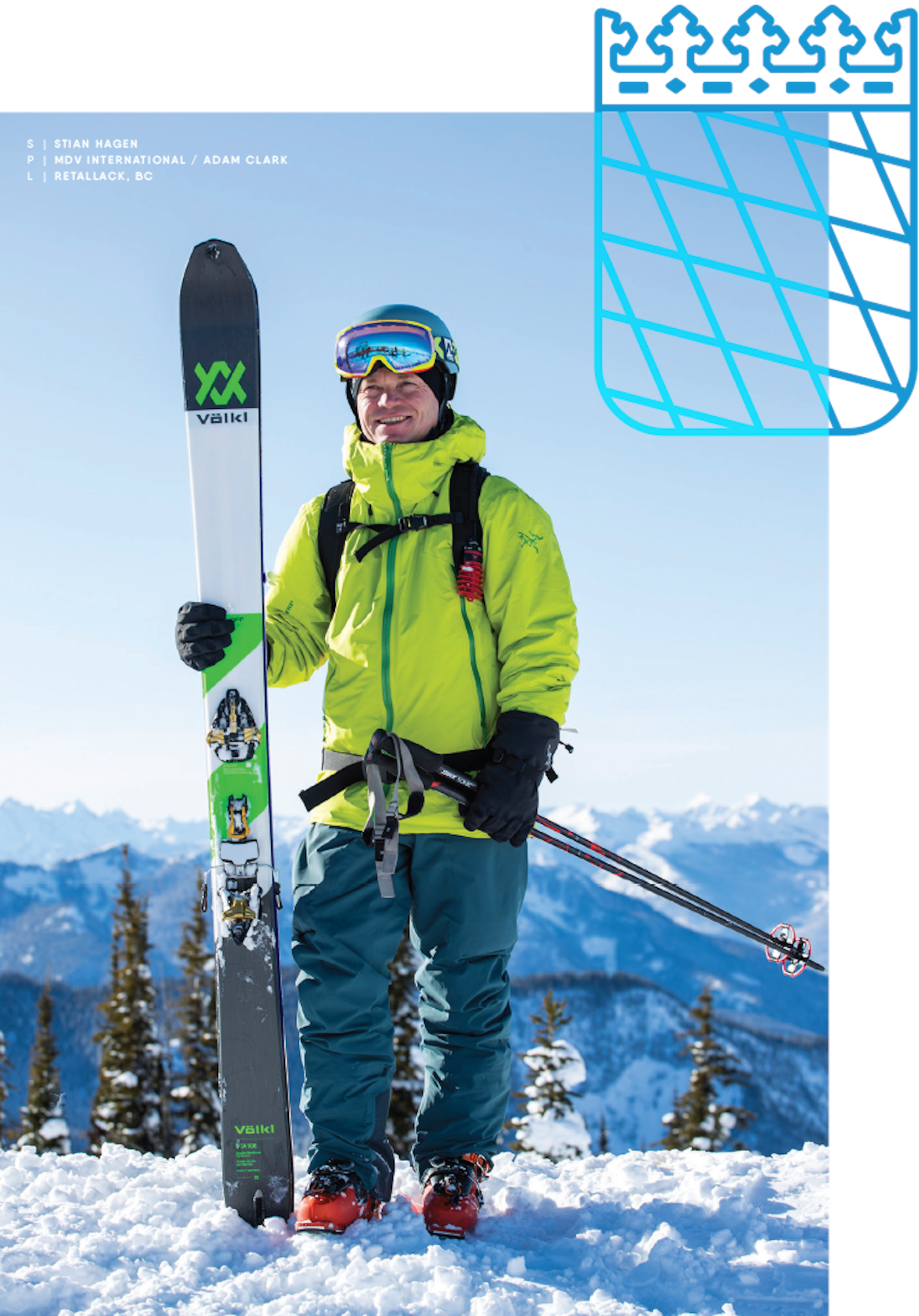
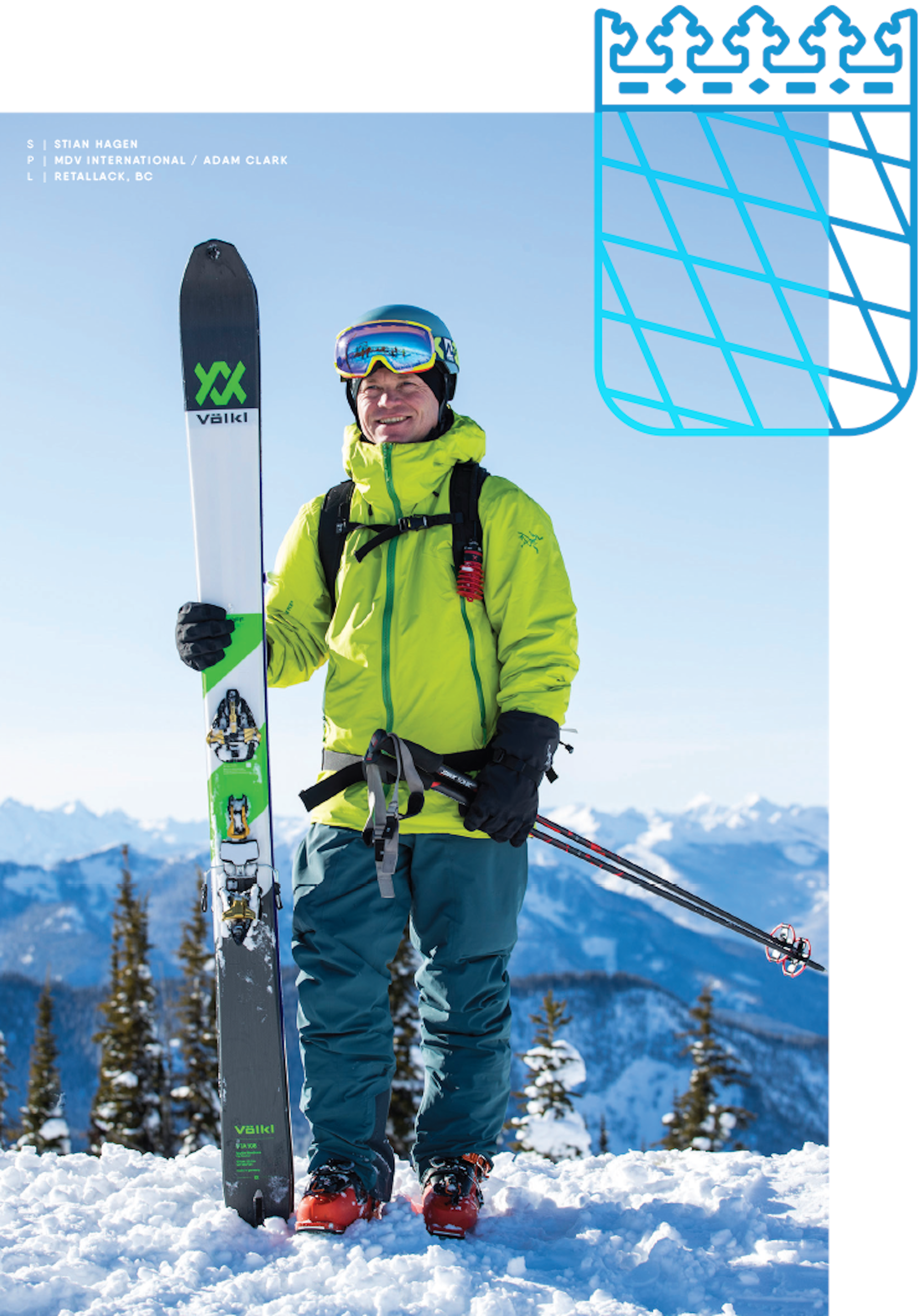
Völkl skir Stian Hagen in Retallack, BC. Photo: MDV International / Adam Clark
The pride in crafting skis in Straubing is built into the Völkl motto: “Hightech made where we live and ski. Bavaria, Germany.” While the state is known worldwide for its cars, beer, cuisine and fairy tale castles, it’s also quite the skiing hub; the Bavarian Alps, characterized by their stunning prominence and toothy glacial cirques, form the southern border with Austria and are home to dozens of ski resorts like Garmisch-Partenkirchen (the site of the 1936 Winter Olympics), Oberstdorf and Oberammergau.
Straubing lies three hours to the northeast of these larger peaks, by car, but the nearby, decidedly gentler mountains of the Bavarian Forest are also home to ski-crazed clientele. And what bonds Straubing (along with the region, as a whole) to skiing is Völkl.
“There’s a huge connection to skiing in Straubing, and the identification of the people here with Völkl is quite extreme, to be honest,” explains Grunert. “Their mentality isn’t to buy the cheapest ski just to have a ski. They want to have a Völkl ski… everyone I talk to in my social surroundings is keen on skiing on a new Völkl ski. The people want to pay a few bucks more to have a good product made right around the corner.”
The region’s residents share a rabid fandom for Völkl in the same way they bleed for the FC Bayern Munich soccer club. It’s their team. To the same extent that Straubing’s residents align themselves with skiing and Völkl, specifically, the company has tremendous pride in perpetuating the Bavarian identification as a mountainous culture.
“The mountains are a definite part of the culture,” explains Geoff Curtis, VP of marketing for Marker Dalbello Völkl North America. “To be able to supply the goods for people to enjoy those mountains and alpine environment is a huge point of pride, it’s adding to the culture that they have a high reverence for.”
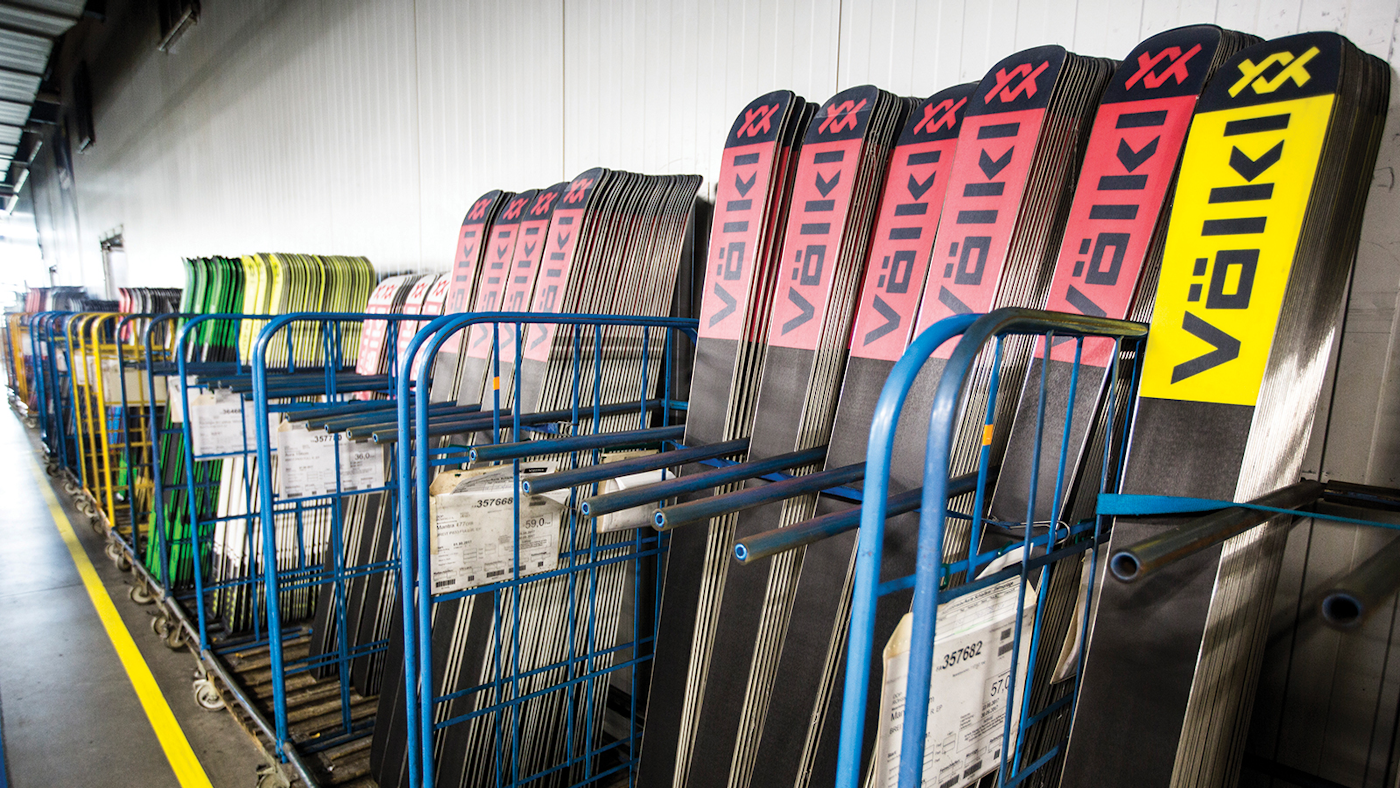
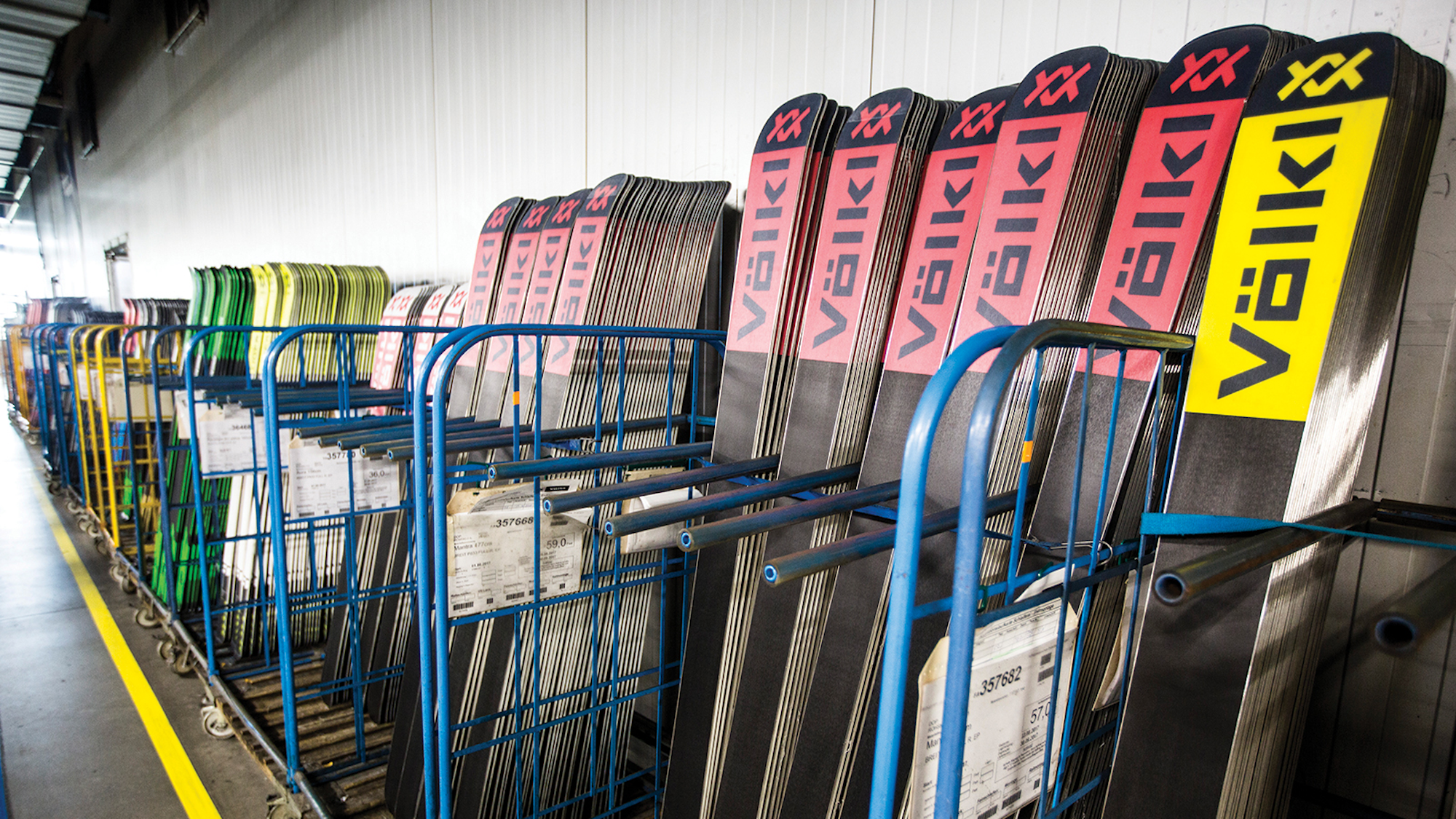
German-made skis ready to ship.
And that has always been the goal of the company. George Völkl began building skis in 1923 under the name Vöstra, a combination of Völkl and Straubing, in a nod to the connection between the family and city. Today, Völkl is the lone ski manufacturer in Germany, producing world-renowned planks from its state-of-the-art facility in Straubing.
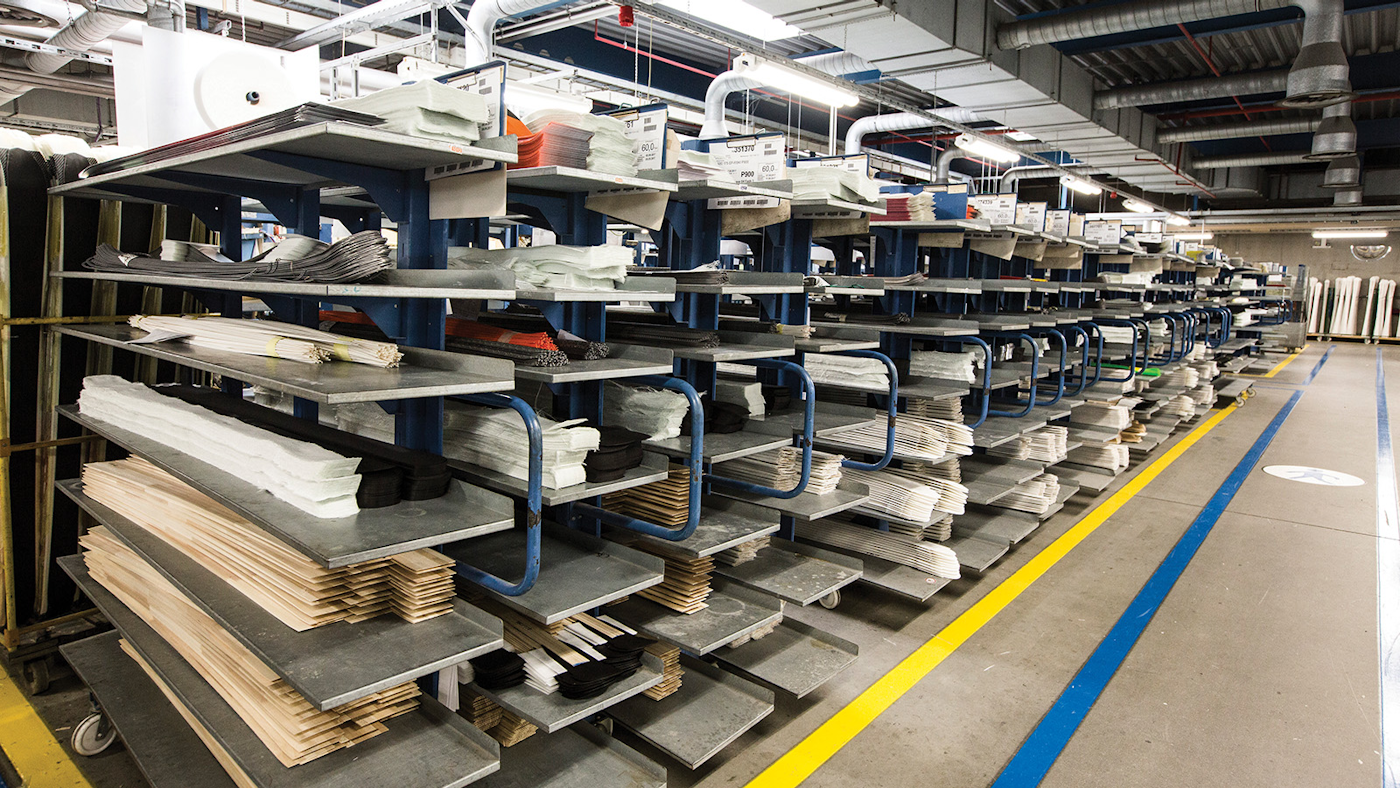
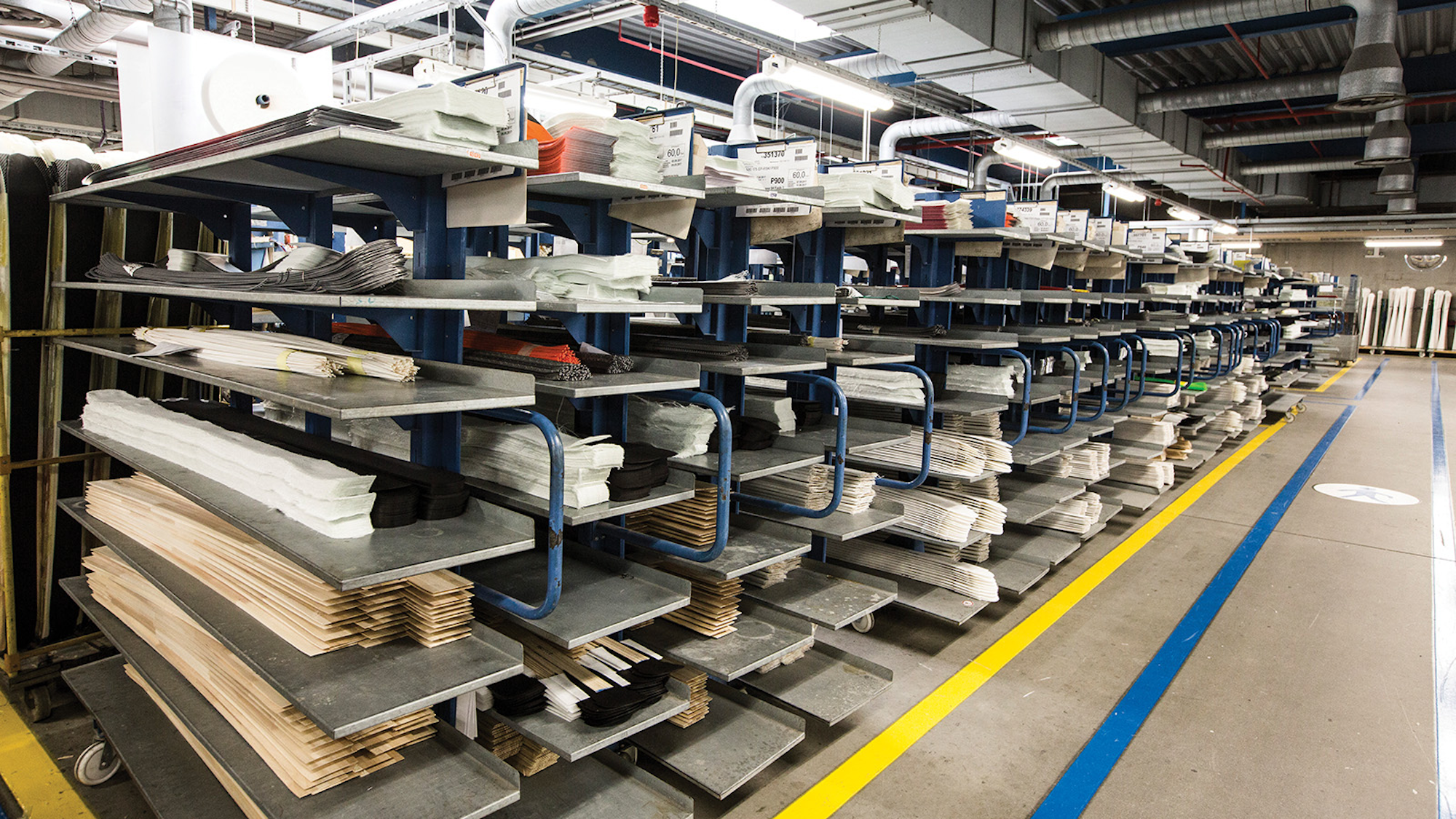
The smorgasbord of raw materials.
I witnessed the engineering genius flowing throughout the factory firsthand in August 2017. The precision in crafting the skis truly adheres to the label of being “Made in Germany.” What sets Völkl’s factory apart from the other numerous European ski factories is the harmonious union of German engineering wisdom, handcraftsmanship and top-of-the-line production equipment that leads to Völkl’s final products. Each piece of the puzzle must synchronize in order for the skis to come out to the brand’s exacting standards.
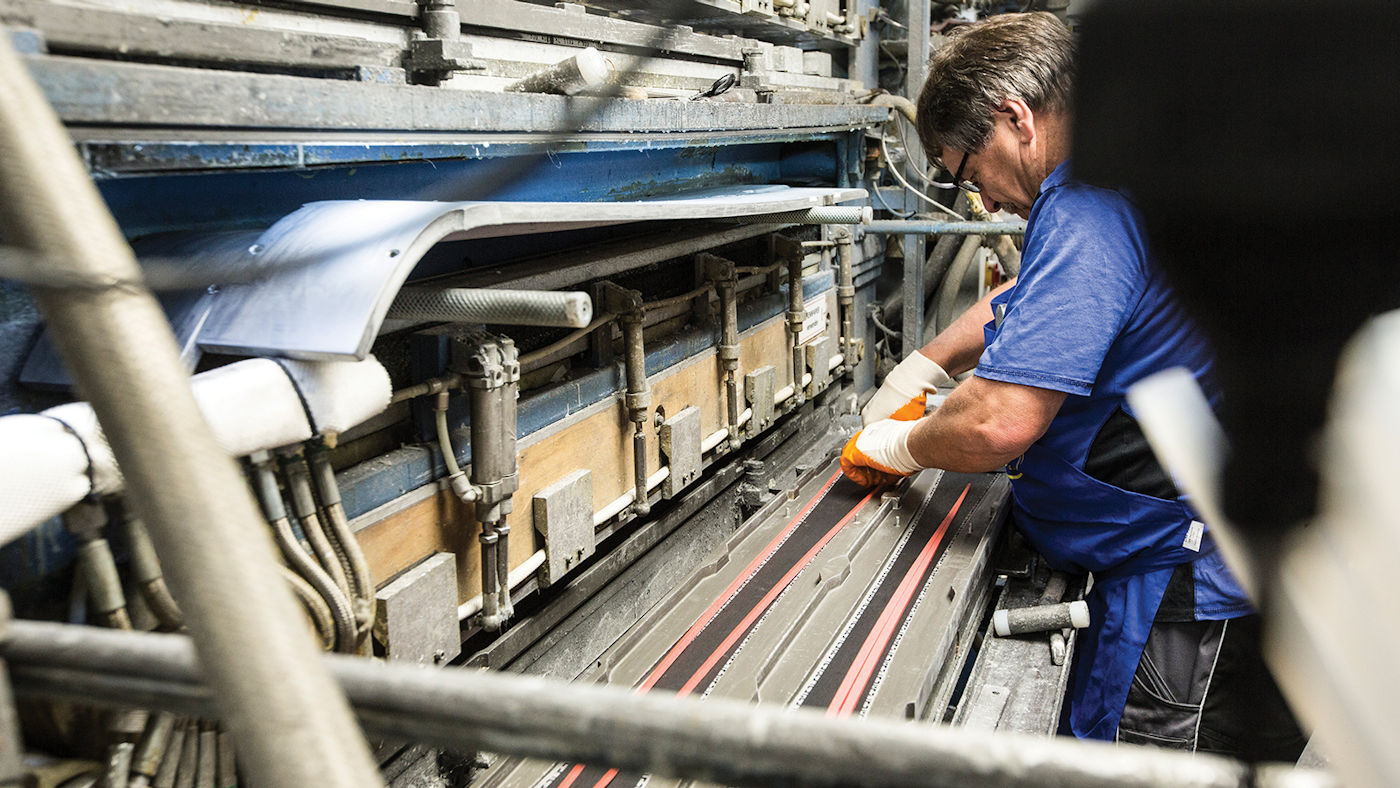
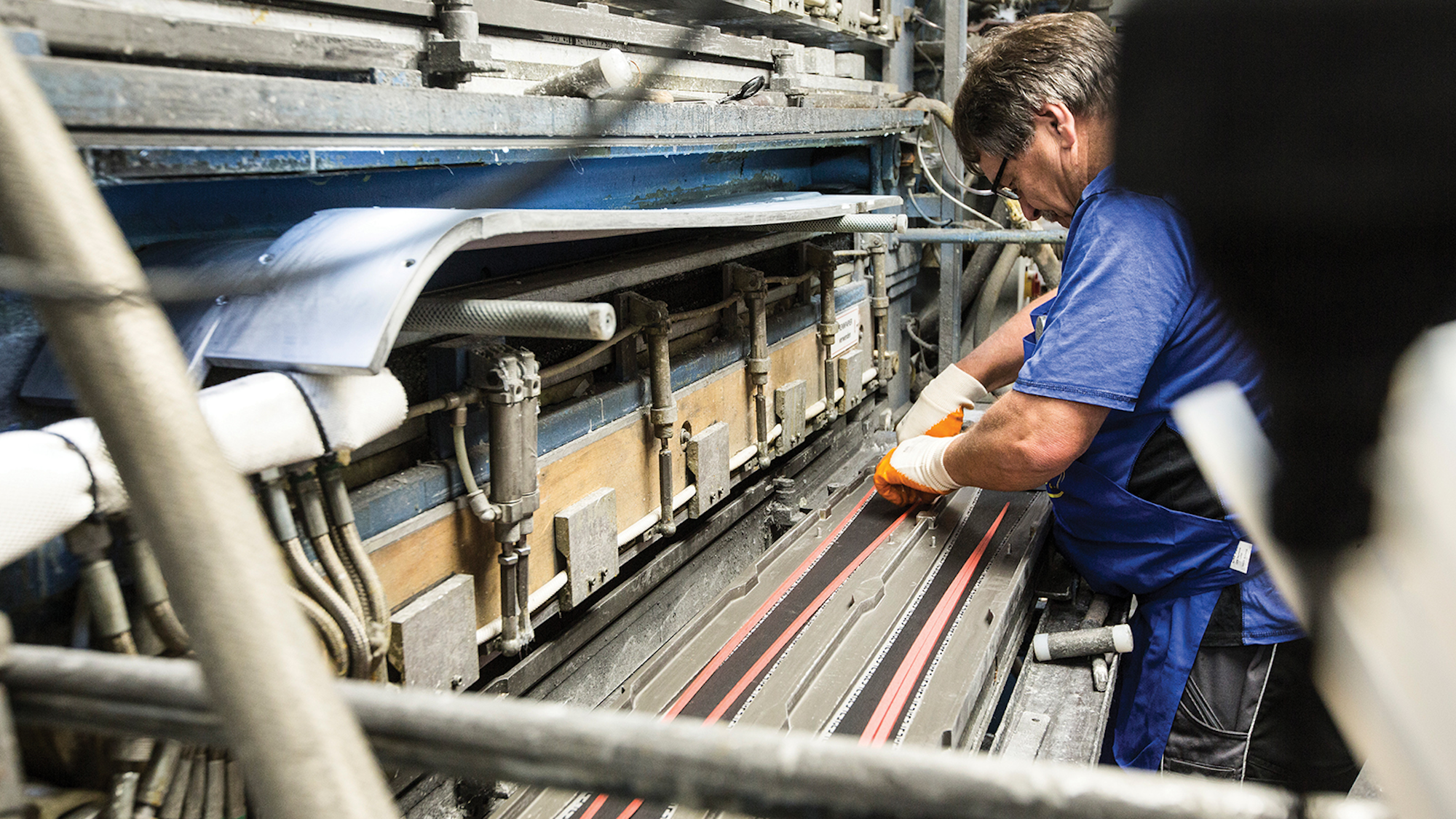
Placing the ingredients of the ski.
The research and development team puts their brains together to come up with the perfect combination of raw materials needed for each ski. The “ingredients” which will eventually end up in the hands of Völkl’s master ski builders, are then organized precisely in stacks that rise from the floor to the 30-foot high ceiling. Dollies meticulously piled with the specific materials that will make up a ski—whether it’s the wildly popular Mantra or the touring-specific BMT—line up in the center of the room. Völkl’s attention to organization goes so far as to utilize a “Paternoster,” or special vertical conveyor system that stores all the ski bases, according to width and thickness.
Producing the topsheet graphics is even a cooperative effort between engineer, machine and craftsman. The individual graphic is conceived, the printing screens are output to film and then implemented into a machine that prints utilizing light, running all night long in order to produce sheets by the morning. Each print is inspected for deficiencies by a quality control specialist and cut by hand to the specific size needed.
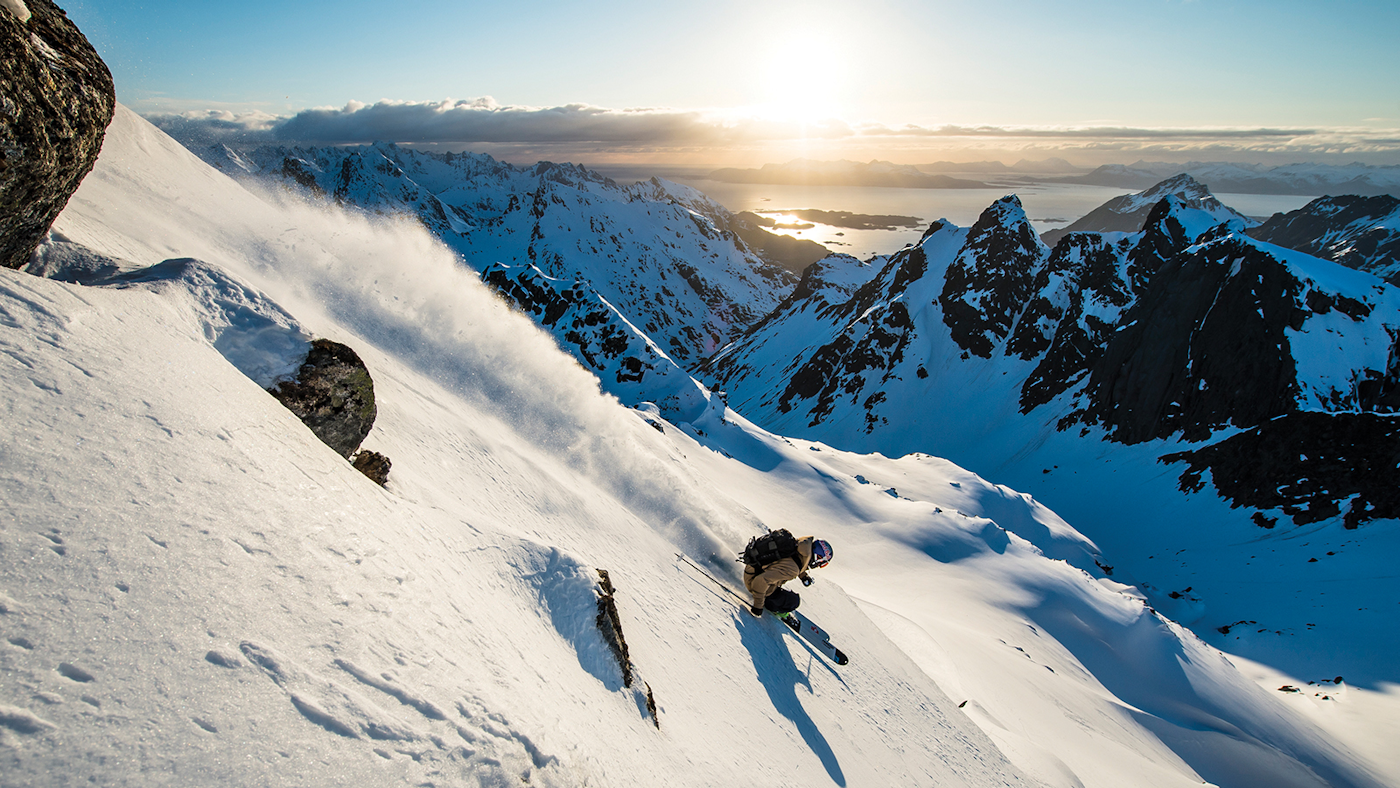
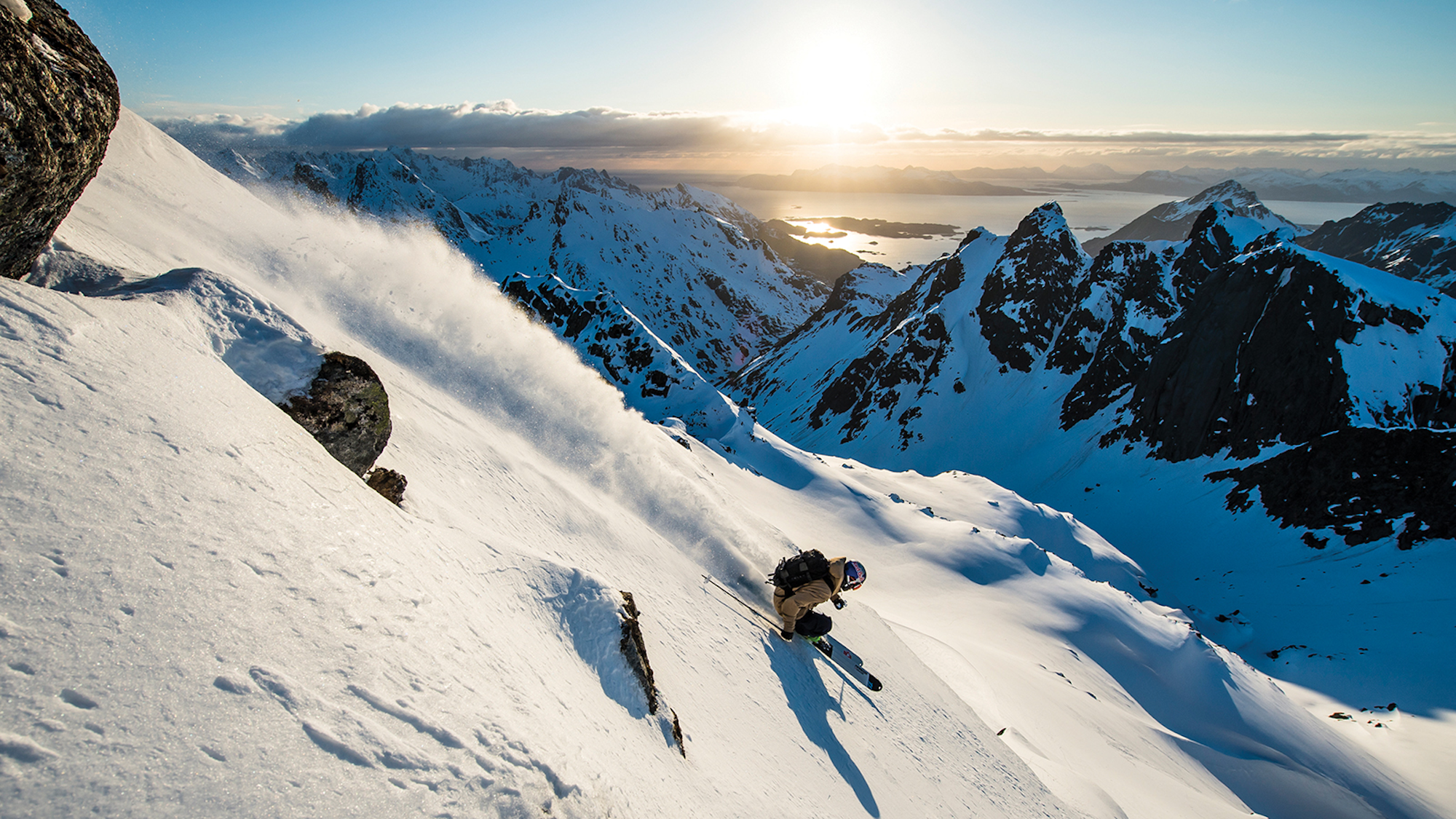
Paddy Graham in Lofoten, Norway. Photo: Pally Learmond
“With Völkl, the product speaks for itself and I think it does come from that German sensibility of having sound practices, making a great product and having great pride in what you’re crafting,” explains legendary big-mountain skier Ingrid Backstrom, who has skied on Völkl nearly her entire pro career. “Talking to the designers and the developers, they are some of the smartest people that I know. They could be designing rocket ships but they just love skiing so much that instead they make skis.”
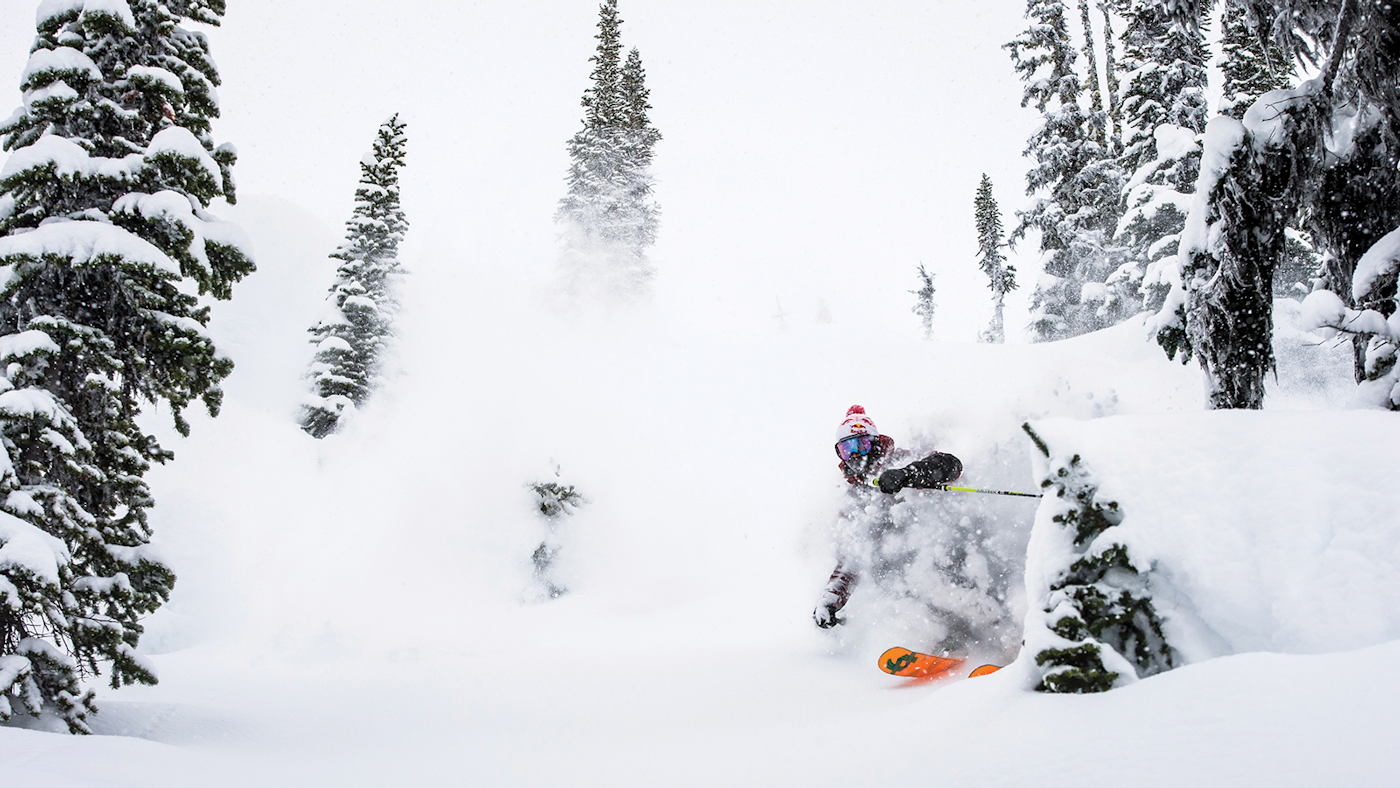
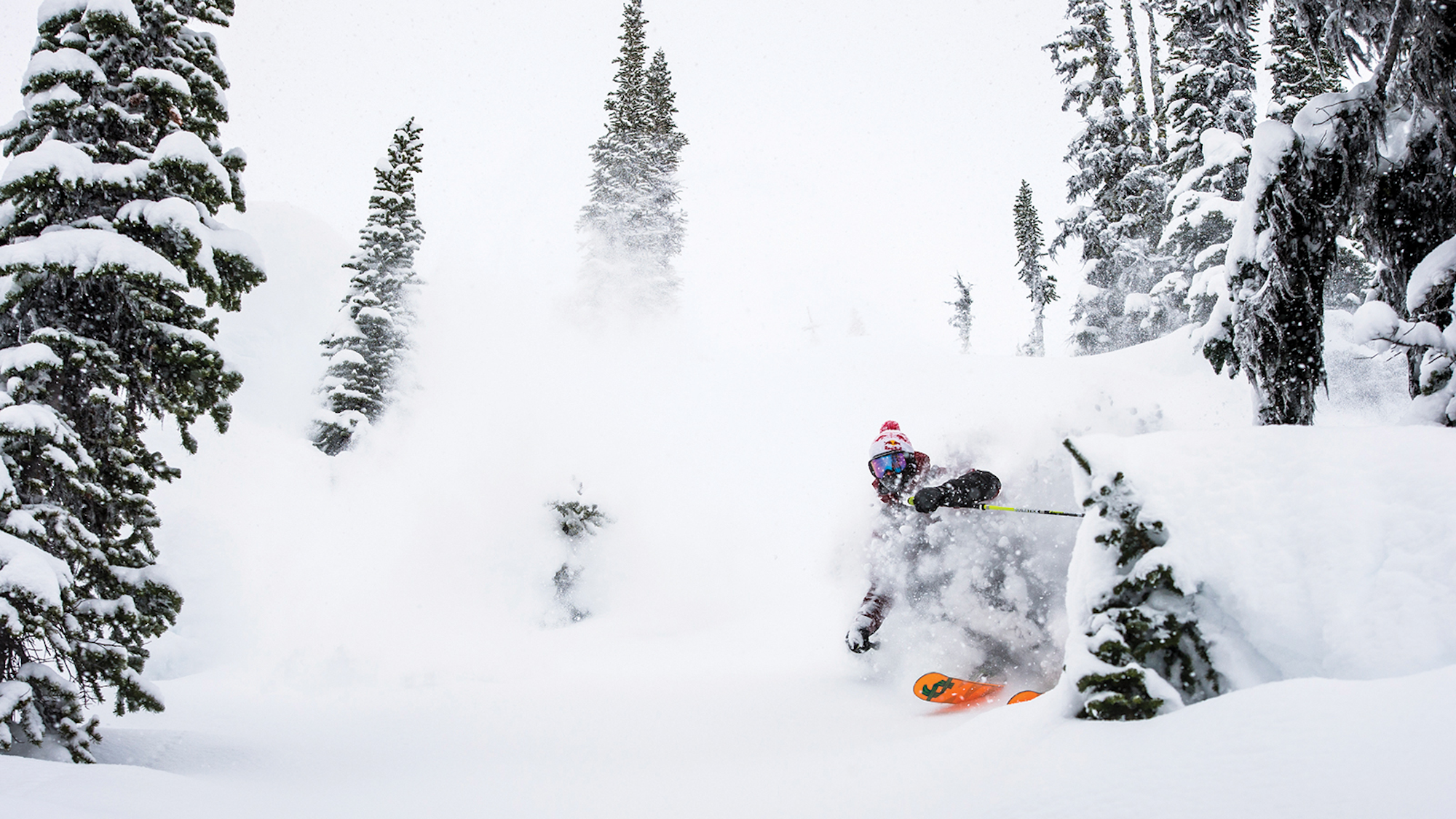
Paddy Graham at the Fairy Meadows Hut, BC. Photo: Pally Learmond
Being skiers themselves, the engineers know the importance of, and greatly appreciate, receiving input from Völkl’s world-class team of athletes—a team that today includes names like Backstrom, Hagen, Ian McIntosh, Dash Longe, Markus Eder, Ahmet Dadali and Paddy Graham. The ski-makers understand that, in order to take the ski to the next level of performance, it’s imperative to tweak it to the standards of someone who skis not just for sport but also for a living.
“Having a company that listens to its skiers, not only pro riders, but engineers, product managers and factory workers is crucial to make the best ski possible,” Hagen—who was instrumental in the development of acclaimed skis like the Katana and Gotama, as well as the newer BMT line—adds.


Changing the design based on feedback from professional skiers allows Völkl to craft planks that perform on a high enough scale to improve the skiing of both professional and recreational skiers, alike. For reference, about 2,000 prototypes are crafted per year before a line of skis is ready for full-scale production.
“It’s a passion from the guys building our prototypes, they just want their baby to be perfect in the end, so that’s why they work their asses off for what feels like twenty-four-seven,” Grunert describes. “We have days where I’ll send in the design files and two days later we’ll have the ski ready on the table. I have the highest compliments for our technicians.”
“We make the skis to suit the team,” adds Grunert, “because you need to get the blend between [pro athlete] needs and commercial, recreational skiing needs.”
Pro skier Paddy Graham, of Britain, has been with Völkl for a decade and cites the brand’s willingness to listen to the athletes as contributing to his loyalty. “It’s not just about being supported by your sponsor, but being able to give input into products and for the company to actually listen to you rather than ignore you.”
Backstrom shares that sentiment, saying she’s “never even thought about skiing on different skis.”
Sure, it’s an idea that’s common in skiing: pro skiers speaking up about how their ski sponsors include them in the design process. But the proof is in the pudding when it comes to Völkl, as the brand sees incredibly low turnover on its athlete team. The two-way communication is indicative of the company’s family-type atmosphere, which, besides the love for the products, is the reason that Hagen has represented Völkl for nearly two decades. “I really like the people that work for the company,” he explains. “People seem to stay with the company for their whole career, most of the people that I work with are also my friends and people that I will ski, enjoy a beer and a laugh with.”
That familial commitment can be traced back to Straubing.
For the skiers of Straubing, owning a pair of Völkl skis equates to a family inheritance. “People tell me they’ve skied on Völkl their entire life, but so did their parents and grandparents,” says Felix Pätzold, marketing manager for Marker Dalbello Völkl International.
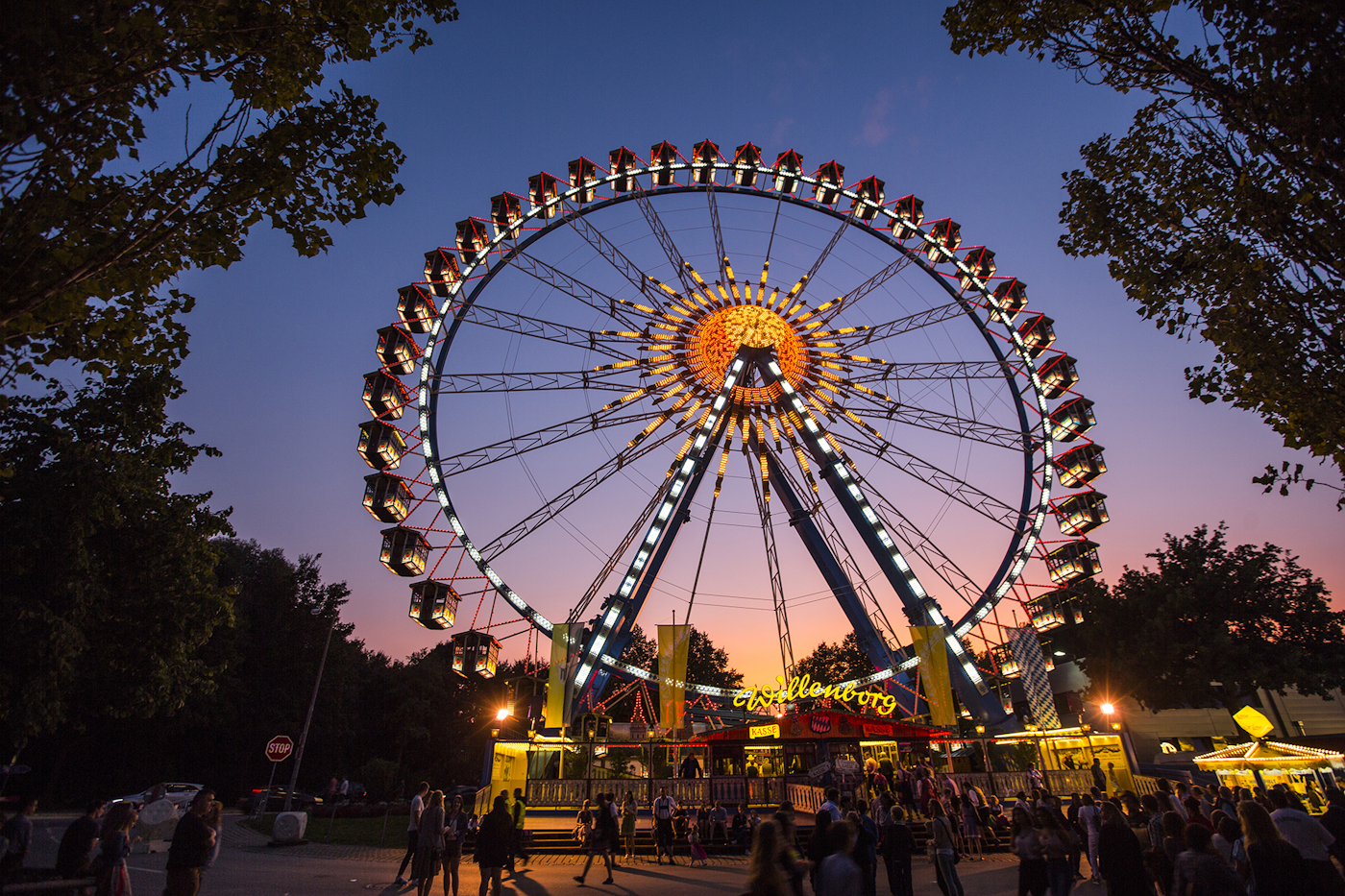
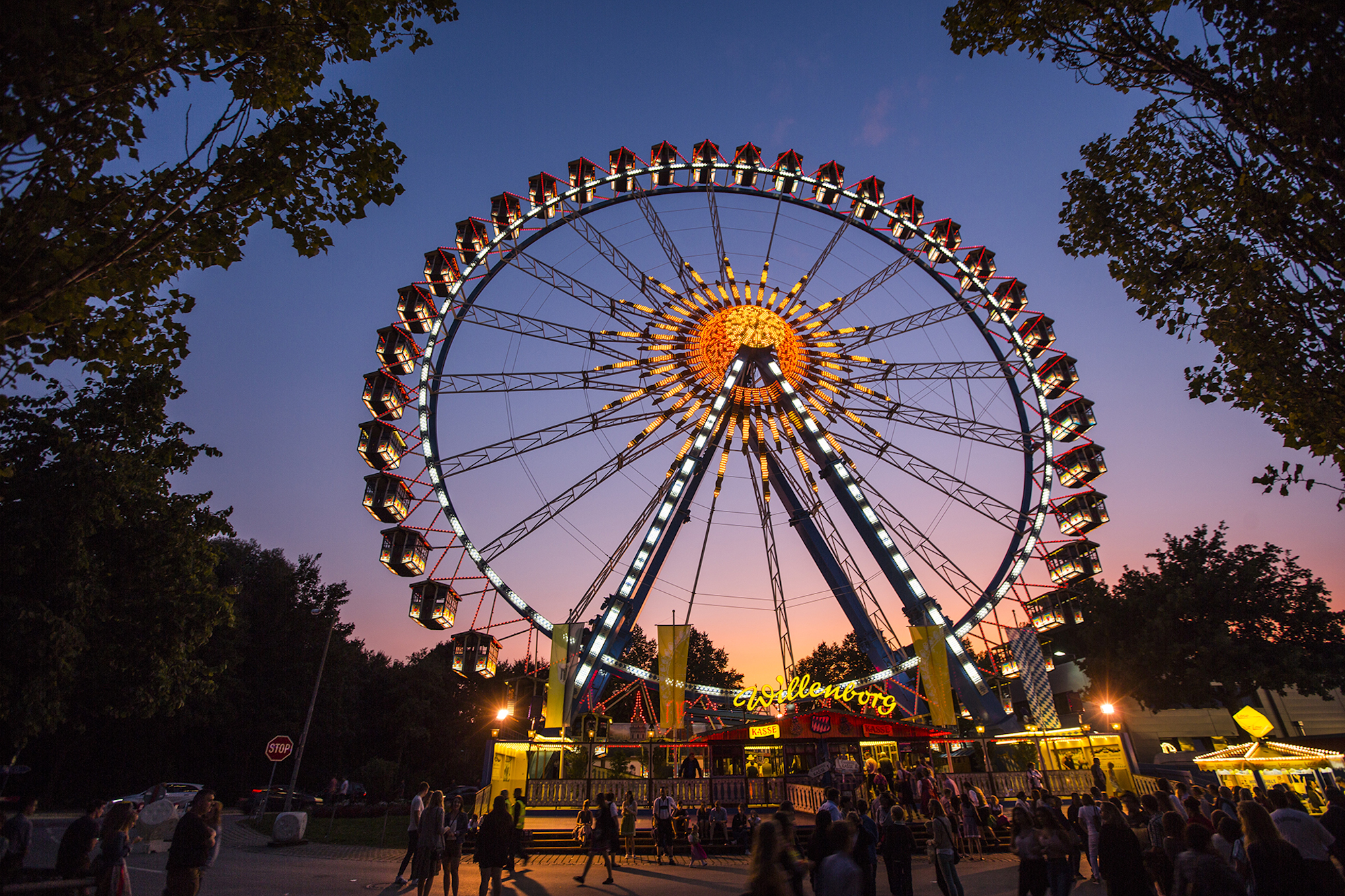
The consideration of tradition I witnessed at Völkl is brought to life at Straubing’s annual Gäubodenvolksfest. The entire town is in attendance as the majority of businesses are closed throughout the event, including the Völkl factory, because, let’s be honest, that tried and true German craftsmanship would take a hit in the midst of an 11-day beer festival.
The pride the people of Straubing have for Gäubodenvolksfest is palpable. I felt it in the air, tasted it in the beer and saw it in the faces of everyone I met. Everyone is dressed to the nines and donning their family crests. The beer is specially brewed for the big occasion and only breweries from Straubing can serve at the festival. Inside the tents, Schweinshaxe (roasted ham hock), Kartoffelknödel (potato dumplings), pretzels and other assorted national cuisine are served on wooden platters. Jubilant attendees stomp, clap and dance to the rousing performances of Bavarian folk bands. Outside, massive, neon-lit Ferris wheels, roller-coasters and other amusement rides light up the night sky while the flags of Straubing and Bavaria flap in the wind.
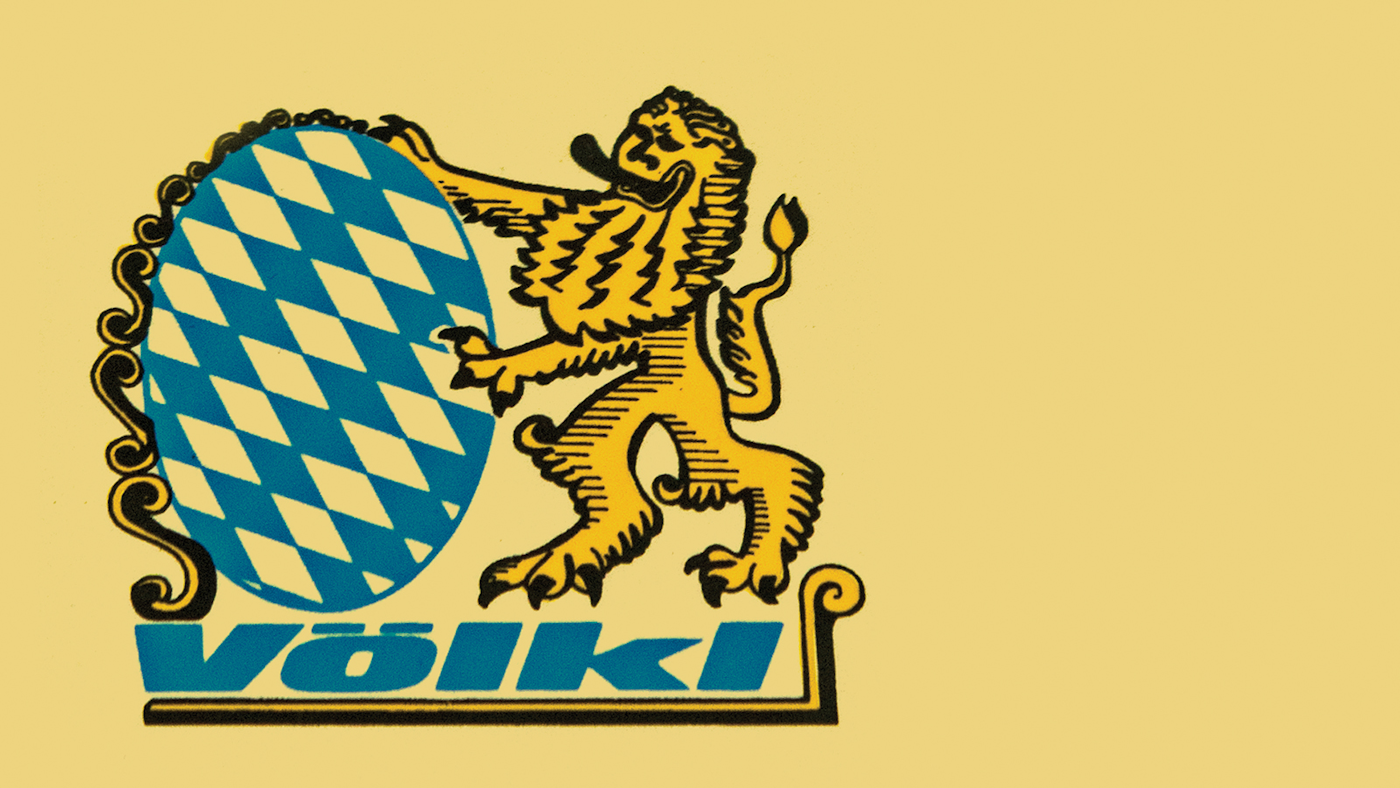
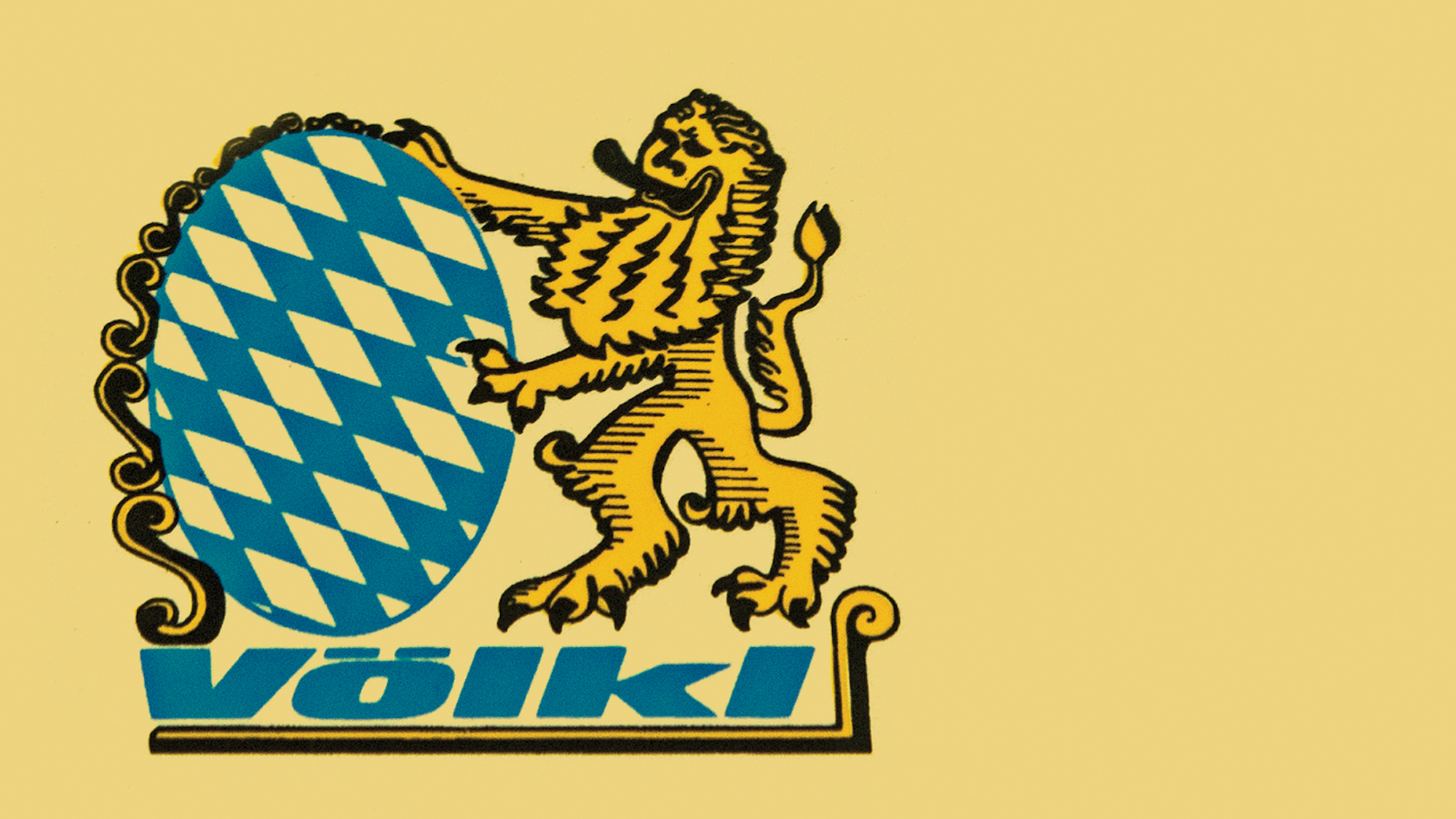
The vintage Völkl logo.
“The people are dressed up, happy, having a good time, and they’re proud of the festival. It represents Straubing and they know people from all over Bavaria and Germany come to [town] for this one week just to enjoy it,” says Grunert. “And also, these people, the skiers in the area, they are proud of us, of Völkl, for making amazing skis and being the last real brand in Germany that still manufactures here. It is all about pride, I would say.”
The pride in that German ski manufacturing is evident in each and every “Made in Germany” label that adorns Völkl skis—skis that, for yet another winter, will be responsible for countless “best days ever.” At the end of each of those ski outings, skiers should take the same pride in riding those skis and clink their beer steins together for the folks back in Straubing.


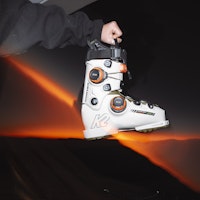
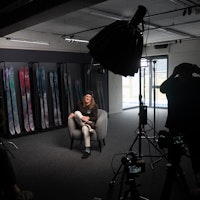
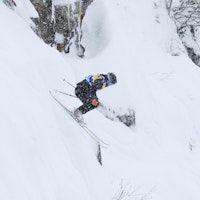
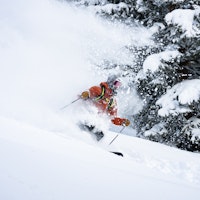
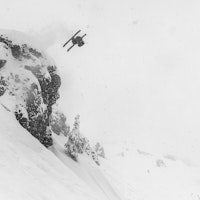
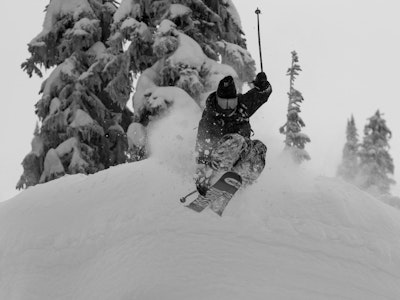
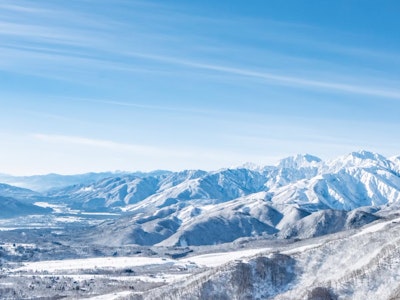
![[GIVEAWAY] Win a Limited Edition FREESKIER Hat](https://www.datocms-assets.com/163516/1772568976-3x4a9169.jpg?auto=format&w=400&h=300&fit=crop&crop=faces,entropy)
